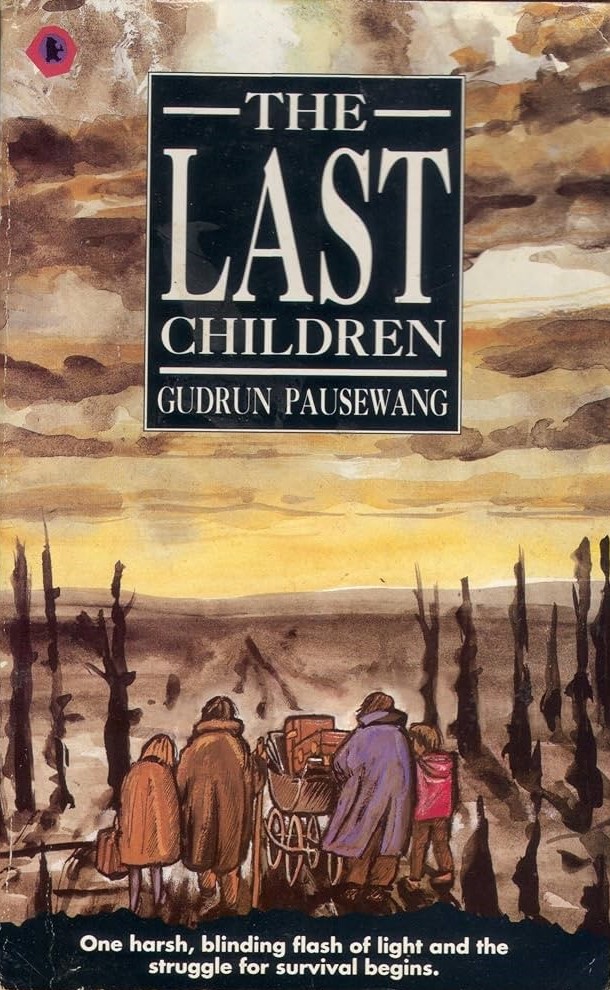 By GUNDRUN PAUSEWANG (Julia MacRae Books; 1983/88)
By GUNDRUN PAUSEWANG (Julia MacRae Books; 1983/88)
This uber-bleak depiction of a post-nuclear Germany was published as a children’s book. That’s a rather ironic state of affairs, as THE LAST CHILDREN outdoes adult-oriented post-nuke accounts like ON THE BEACH and THE ROAD in angst, outrage and sheer unpleasantness. It also outdoes the similarly themed American YA novel AFTER THE BOMB and FALL-OUT (a.k.a. THE CLOUD), a subsequent nuclear-themed shocker by THE LAST CHILDREN’s author, although FALL-OUT is the better-known of the two books, being required reading in German schools (and having been adapted for film in 2006).
Gundrun Pausewang (1928-2020) was a German schoolteacher and author of over 100 YA books whose primary mission statement was “We should never experience another war.” Her views are further elaborated in the nonfiction epilogue to this book, which states “There can hardly be any doubt that our very existence is being threatened by the steadily growing number of nuclear weapons,” and that “Perhaps my story will encourage all of us to begin to resist the threat of a nuclear holocaust. It is still not too late!”
She certainly gets right to the point, with a page one nuclear blast coming “very suddenly, so suddenly that it caught a lot of people in their bathing suits or lying on their deck chairs.” In the case of the first person protagonist Roland, a carefree teenager, he’s on a family trip to the (fictional) town of Schevenborn to stay with his grandmother. The trip, needless to say, doesn’t go as planned, with what’s left of society plunged into chaos and the family forced to adopt extreme, and extremely amoral, survival methods.
Not that there’s much to live for in this world, which becomes suffused with disease, insanity and starvation. Radiation poisoning is a constant, adding to an atmosphere of ever-present death that’s detailed in an unnervingly nonchalant manner (describing a band of local ruffians, Roland offhandedly muses that “some froze to death, but most of them starved”). Roland’s mother is pregnant, but as anyone who’s viewed the infamous 1984 telefilm THREADS well knows, newborn life is not a sign of optimism in a world where “Almost all of those born alive are crippled or blind, deaf-mutes or imbeciles.” Furthermore, “no matter how hard the townspeople try to survive, it’s clear that they’ll die off, too. It’s only a question of time.”
Ably translated by Norman Watt, who “first read THE LAST CHILDREN in German and was so moved that he decided it must be made available to an English-speaking audience,” the book is a profound downer whose impact is downright transcendent. It can be argued that the author used cold war anxiety to indulge in all manner of bloody sensationalism (with the horrors occurring at a rate of two or more per page), but that’s something readers must decide for themselves. This means THE LAST CHILDREN, sensationalistic or not, deserves to be brought back into print so it can traumatize as many children (and adults) as possible.
